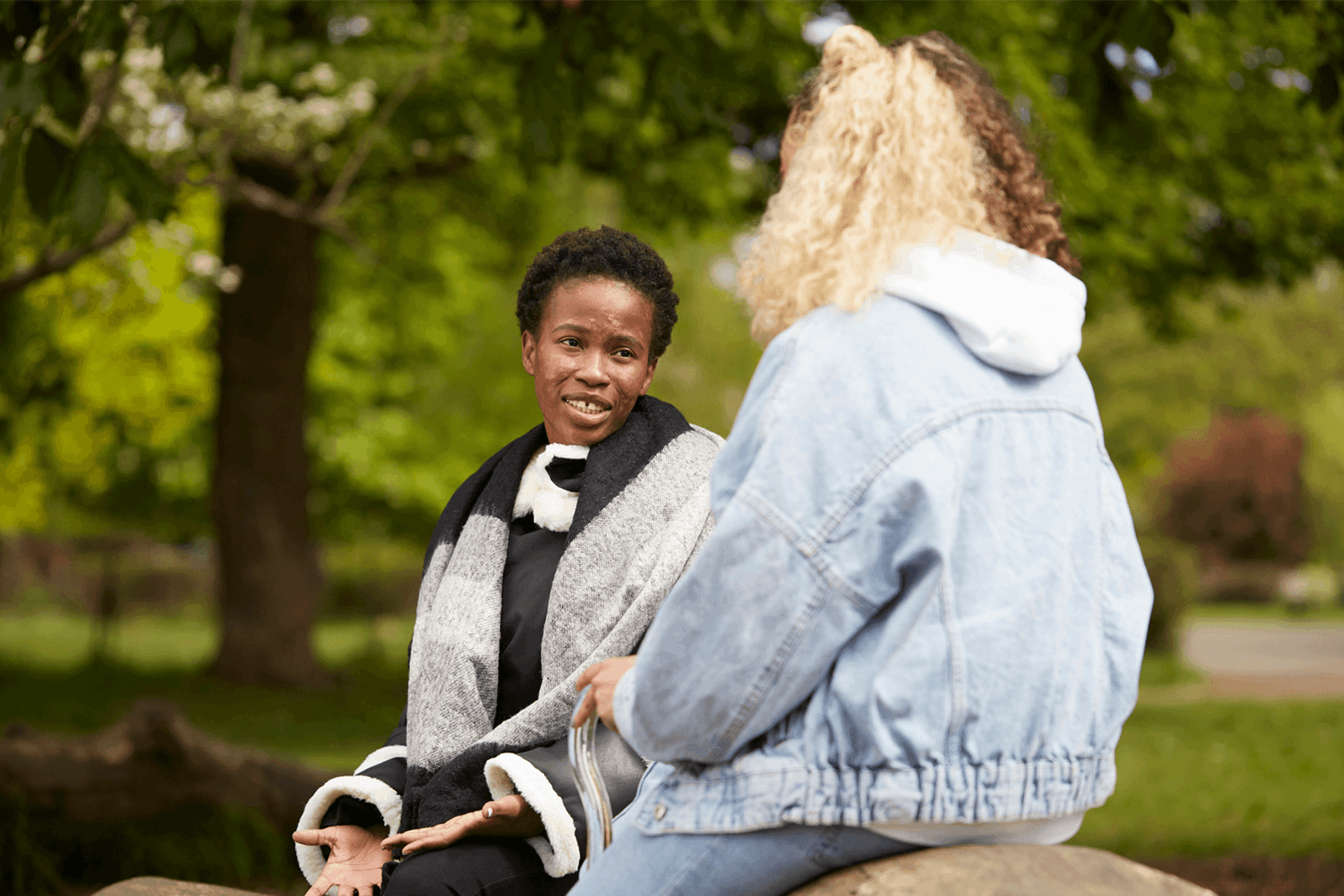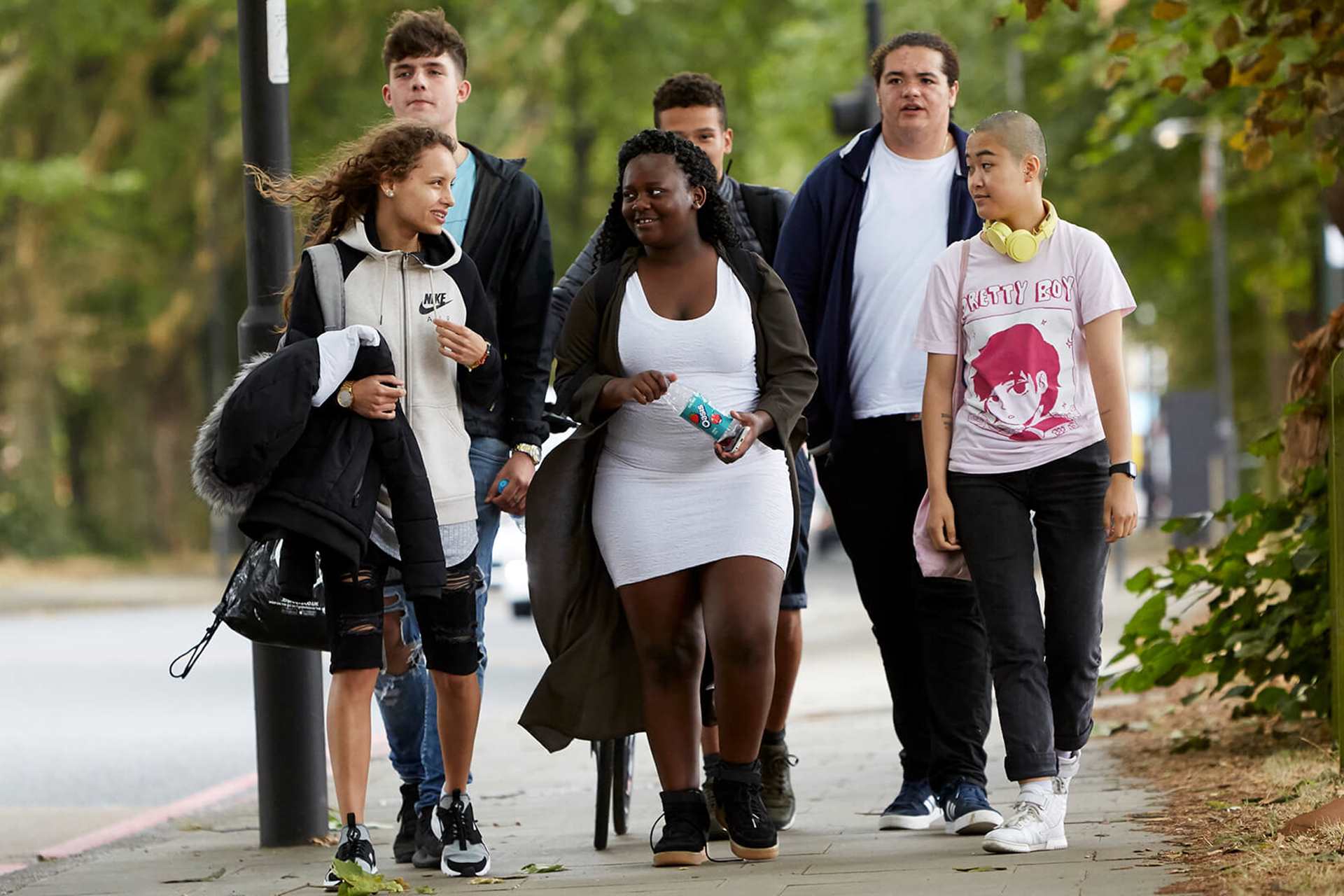Topics mentioned: depression, self-care, counselling and therapy
About: Seasonal Affective Disorder (SAD) is a type of depression that comes and goes in a seasonal pattern. Imogen shares her tips for coping with SAD.
What is seasonal affective disorder?
Although seasonal affective disorder is very common, it’s not something you hear talked about enough. It is similar to depression, except it comes and goes in a seasonal pattern, with the symptoms usually being mainly present during the winter. These symptoms include low mood, a lack of energy, a loss of pleasure in activities you would normally enjoy, and feelings of irritability.
Over the years of experiencing seasonal affective disorder, I have found a plethora of coping mechanisms that every winter I try to implement in my life. I want to share these with you in case they help. You don’t have to implement every coping mechanism I mention here; I know the motivation isn’t always there to try and get better. Some days you just want to curl up and have a duvet day, and that is perfectly valid. These are just some techniques that have helped me cope with my feelings. I have found that even if I try one of the following coping mechanisms, it brings me one step closer to feeling that little bit better.
I have found that even if I try one of the following coping mechanisms, it brings me one step closer to feeling that little bit better.
Sunlight and walking
This has to be one of my main coping strategies on days I’m feeling very low. Even if my brain is telling me to just stay in bed, I get up and go for an hour-long walk. It doesn’t even have to be that long - ten minutes walking with the sun shining on my face and I always feel better.
Spending some time in the sun provides us with Vitamin D and can help us produce serotonin, both of which have been linked to improvements in mood. Getting some exposure to sunlight in the morning can also help our bodies regulate the release of melatonin, a hormone known to affect our sleep. This means that a bit of sunlight in the morning can help feelings of lethargy and sleepiness subside (at least for a little while) and help us sleep better at night.
Ten minutes walking with the sun shining on my face and I always feel better.
Stop scrolling in the mornings
One of the most important things I have implemented in my life is to stop scrolling on social media in the mornings and instead just get up straight away.
By doing this, I stop myself from two things: a) from staying in bed all day feeling low and depressed with no energy, and b) comparing myself to the highlight reel that is shown on social media, which tends to only make my mood worse and sets a bad tone for the rest of the day. By getting up straight away without going on my phone, the day already seems brighter.
Journaling
I find it really helpful when I’m feeling low to get my thoughts and feelings down in my diary. Most of us think about how we’re feeling, but never either say it out loud or write it down. By writing it down, you take those thoughts that are going around and around in your mind and get them out, which can feel really good when you’re down. If you don’t have a physical diary, write it in a word doc! You will find your mind is that bit emptier of those constant negative thoughts.
By writing it down, you take those thoughts that are going around and around in your mind and get them out, which can feel really good when you’re down.
Creating a routine and planning my days
Having a routine and planning my days has been essential over the years for managing low mood. When I’m feeling low, sometimes I feel no motivation to do anything. While this is completely valid, I have personally found that the feeling of productivity I get from doing things on my ‘to do’ list (when I’m able to) makes the days when I can’t manage anything feel less bad.
When I talk about a routine, this doesn’t have to include anything big. Adding things to my daily routine such as waking up early, making my bed every day, reading my favourite book and journaling have made such an impact on how I feel day to day. Those things may not seem like a lot, but they add up.
Therapy
I know lots of people suggest counselling if you are struggling with your mental health. But it is something that I can honestly say has changed my life and the way I see the world. Talking to someone professional who not only has a different perspective, but who I can be completely honest with, has been game-changing. Because of the confidentiality you have with a therapist, I felt completely safe to express my emotions fully. Therapy also helped me find the coping mechanisms I’ve mentioned here.
Talking to someone professional who not only has a different perspective, but who I can be completely honest with, has been game-changing.
Finally, just know that while it may feel like your feelings are never-ending and things will never get better, they will. Whether this is a new thing for you or you have been struggling for years, things will get better. You are not alone in this I promise you.
I hope that, even if you try just one of these coping mechanisms, it will help you feel more yourself again.
More information and advice
We have tips and advice to help you find the support you need. Take a look at our guides.
Where to get help
However you're feeling, there are people who can help you if you are struggling. Here are some services that can support you.
-
Childline
If you’re under 19 you can confidentially call, chat online or email about any problem big or small.
Sign up for a free Childline locker (real name or email address not needed) to use their free 1-2-1 counsellor chat and email support service.
Can provide a BSL interpreter if you are deaf or hearing-impaired.
Hosts online message boards where you can share your experiences, have fun and get support from other young people in similar situations.
- Opening times:
- 24/7
-
Youth Access
Provides information about local counselling and advice services for young people aged 11-25.
Put in your location and what you need help with into their 'Find help' search, and see what services are available in your area.






